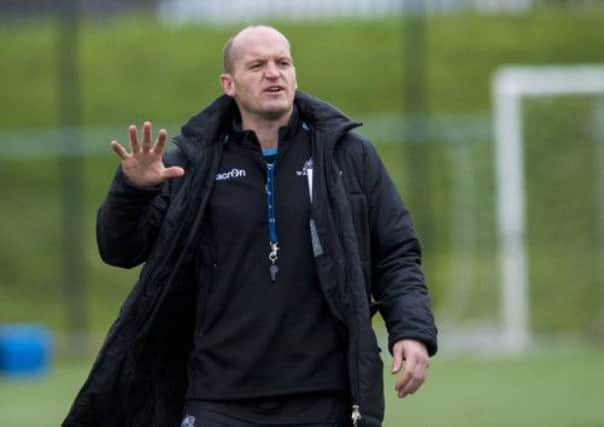Cardiff defeat was typical of Glasgow’s Europhobia


They went about it the right way on Friday evening, losing 29-20 to Cardiff. After the opening ten or 15 minutes, Glasgow never looked like winning the tie against a Cardiff Blues side who have won three games out of nine in the league and have been decimated by injury in recent weeks. The hosts were missing a slew of seasoned international players including the likes of Bradley Davies, Jamie Roberts, Gethin Jenkins and Lions skipper Sam Warburton but you wouldn’t have known it.
Their young Welsh replacements responded with enthusiasm and maturity and gave Glasgow a lesson in the contact area, where Gregor Townsend’s men simply could not hold on to possession. It is one of rugby’s unwritten rules that you have to look after the ball like it was your first-born. Glasgow were so haphazard about caring for little “Gilbert” that, had social workers been present, they would have placed him in foster care there and then. Glasgow lost a total of 18 turnovers, many of which came at the breakdown where Cardiff committed numbers and reaped the reward.
Advertisement
Hide AdAdvertisement
Hide AdChris Fusaro was replaced by Tyrone Holmes before half time and the openside flanker didn’t look remotely amused by the decision. It made little difference on the night, Glasgow continued to cough up ball like Santa handing out early Christmas presents. One small snapshot early in the second half illustrated the problem. Stuart Hogg countered from deep but was turned over in contact. Glasgow somehow salvaged the situation, winning it back in the murky depths of the very same breakdown, only for Jon Welsh to lose the ball again in the following phase of play. That was the story of the match.
The helter-skelter pace can’t have helped, because Glasgow were the first team in history to chase the game from the kick-off. They have always liked to play at a high tempo but their skills failed to match their speed on Friday evening.
“I think we just weren’t accurate enough,” said coach Gregor Townsend immediately after the match. “Whether you are playing at pace or not you need to be more accurate when carrying ball and, obviously, be accurate at the contact areas where we were penalised a few times in the first half.
“They had some joy at kicking balls away and getting through and pressurising us. It was obviously an area that Cardiff had worked on.”
“They have some really talented players,” added Townsend. “When we found out that their half-backs were back, they have very attacking half-backs. I thought [stand-off] Rhys Patchell was outstanding.”
Patchell walked off with the man-of-the-match award and most of the plaudits. Duncan Weir opposite him did not. He dropped one pass to give Cardiff the attacking five-metre scrum from which Patchell scored the opening try of the match, piercing Glasgow’s defence after just three phases. More importantly, the question is, why did Townsend pick his kicking stand-off and then apparently instructed Weir to run the ball from all corners?
Glasgow needed someone to do rugby’s equivalent of putting their foot on the ball, get the forwards taking the ball at pace, commit some bodies and dent the Blues’ defence before sending the ball wide. Mix things up.
It is difficult to recall a single rolling maul in the entire match.
Advertisement
Hide AdAdvertisement
Hide AdMost of all, Glasgow needed to play in the right areas of the field, especially after going 13-0 down. The first time the visitors managed to hold on to the ball for any length of time, Sean Maitland scored and still the match would have been close had Glasgow shown some discipline.
Instead they gifted Leigh Halfpenny six kickable penalties and he converted five of them, two of which came in the opening 15 minutes and helped set the tone of the match. In contrast, Cardiff conceded their first penalty on 51 minutes, by which time, Glasgow had given up seven.
Glasgow are out of Europe, realistically if not mathematically, but they can use next week’s return leg against the same opposition to play some sensible, constructive rugby.
They need to go back to go forward, get the basics right before they turn into a sevens side.